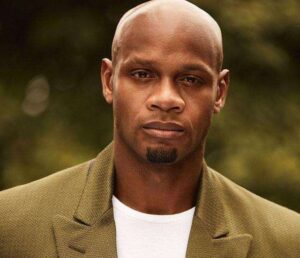
Pushback
A syndicate of six organisations and 11 individuals, in a pushback against the Jamaican Government’s decision to delay signing the new African Caribbean and Pacific (ACP)-European Union (EU) pact — the Samoa Agreement — on November 15, says the Administration should do an about-face and sign without entering any reservations and without further delay.
That call comes after Minister of Foreign Affairs Senator Kamina Johnson Smith last Friday, in response to an outcry Thursday from Jamaica Coalition for a Healthy Society (JCHS) over Jamaica’s pending ratification, indicated that the Government will delay signing the agreement to facilitate ongoing consultations but would still participate in the meeting of the ministerial councils as customary.
The JCHS, in a statement to the media last Thursday, expressed alarm that “the agreement will bind Jamaica to undefined human rights obligations tied to trade sanctions, reintroduce Comprehensive Sexuality Education (CSE) back into schools despite parents’ outrage in 2012 with regard to CSE’s sexualising content; trap the nation in yet-to-be-negotiated international instruments, and demand the acceptance of terms that directly threaten citizens’ freedom of conscience and speech among other alarming concerns”.
But the petitioners, in the statement delivered to the foreign ministry on Monday afternoon, pointed to what they said are discrepancies between the claims made by the JCHS and the facts related to past EU-ACP agreements and the proposed Samoa Agreement, and called on the Administration to do a U-turn.
“The proposed new agreement is not unprecedented in its scope as the same subject areas were covered in the Articles of the Cotonou Agreement of 2000-2020 and which was extended to 2021,” they said.
They further dismissed concerns by the JCHS about the absence of a definition of “human rights” in the agreement despite some 100 references to the term in various clauses. The consortium, in objecting, said throughout the text of the agreement reference is made to “relevant human rights instruments”.
The JCHS has been at pains to point out that while, historically, the agreements have focused on trade and economic development relations, the new agreement is unprecedented in its extensive coverage from trade and development to data protection, war crimes, terrorism and violent extremism, illicit trade in drugs, education, health, food security, social inclusiveness, youth, culture, environmental protection, climate change, human rights, democracy, gender equality, and human trafficking, among other subject areas. It further expressed discomfort with what it said is the concept of “human rights” by the EU’s definition.
“To enter into a 20-year binding agreement with the EU without a national consensus on the nature and content of human rights renders Jamaica vulnerable to any definitions imposed by the stronger party, the EU, without input from the citizens of Jamaica,” the JCHS has contended.
The Samoa Agreement is the successor to the Cotonou Partnership Agreement, the principal development framework through which Jamaica and other Organisation of African, Caribbean and Pacific States have obtained grant funding from the EU since the year 2000.
However, the syndicate, in the statement, said, “having read the actual negotiated text we see no departure in the text from existing United Nations and other international declarations, programmes of action, platforms for action, agreements and conventions to which Jamaica is a signatory.
“Furthermore, we see no departure from the spirit and intent of the immediate past EC-ACP Agreement (Cotonou) which served as the framework for development cooperation and trade between the parties for 21 years up to 2021 without injury to the sovereignty of Jamaica. We therefore call on the Government of Jamaica to sign the agreement without entering any reservations without further delay,” the group said.
Organisations listed among the signatories include We-ChangeJA, Eve for Life, Stand up for Jamaica, Equality for All Jamaica Foundation Limited, Sistren Theatre Collective, and Jamaica Environment Trust.
Individuals listed as signatories are civil society advocate Carol Narcisse; blogger Emma Lewis; gender and development advocate Judith Wedderburn; artist Stephanie Martin; gender and child rights advocate Joy Crawford; gender and governance advocate Deborah Duperly-Pinks; founder of Jamaica Environment Trust Diana McCaulay; civil society advocate Horace Levy; convenor of GROOTS Jamaica, Lana Finikin; gender advocate Hilary Nicholson; and development consultant Patricia Donald Phillips.
























